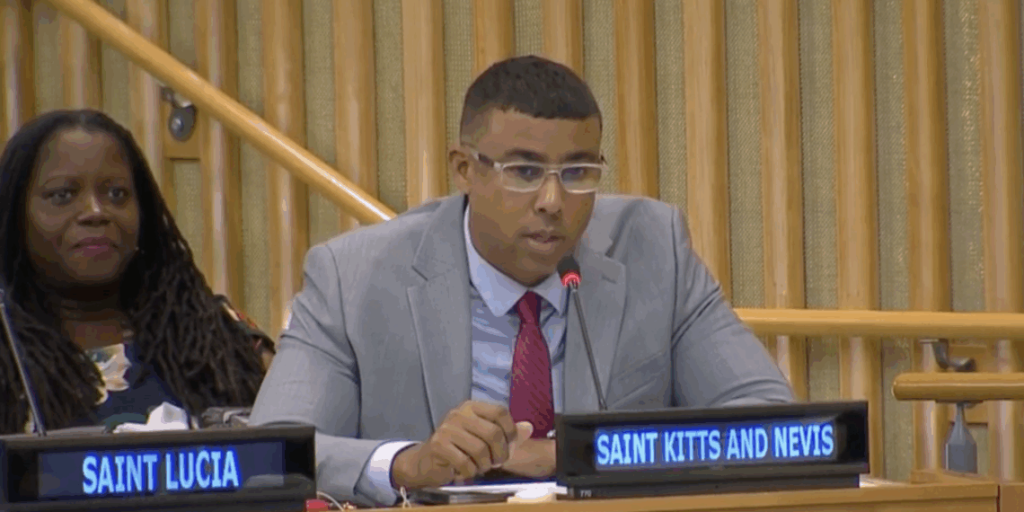Wilkin Prioritizes International Tax Cooperation for Financial Security and Economic Mobility Amidst UN Framework Convention Drafting
Attorney General Prioritizes Financial Security and Economic Mobility as United Nations Drafts Framework Convention on International Tax Cooperation
The international tax landscape is undergoing a significant transformation, driven by the increasing globalization of economies and the rise of digital technologies. This evolving environment necessitates a coordinated global approach to taxation to address challenges such as tax avoidance, tax evasion, and profit shifting by multinational corporations. Against this backdrop, the United Nations is playing a crucial role in developing a Framework Convention on International Tax Cooperation. This convention aims to establish a comprehensive and inclusive multilateral instrument to enhance international tax cooperation and ensure a fairer and more effective international tax system.
In this context, Attorney General Garth Wilkin of Nevis has emphasized the importance of prioritizing financial security and economic mobility, particularly for small island developing states (SIDS), during the development of this convention. SIDS face unique vulnerabilities due to their limited economic diversification, dependence on foreign aid, and susceptibility to external economic shocks. These vulnerabilities underscore the need for a tax framework that safeguards their financial stability and promotes sustainable economic development.
Attorney General Wilkin has stressed the need for the convention to address the specific challenges and needs of SIDS. This includes ensuring that SIDS have a voice in international tax discussions, providing them with technical assistance to implement international tax rules, and taking into account their limited capacity in tax administration. He also highlighted the importance of protecting SIDS from harmful tax practices, such as tax competition and aggressive tax planning, which can erode their tax base and undermine their development efforts.
Furthermore, Attorney General Wilkin has underscored the importance of using the convention to promote economic mobility. This includes creating a fairer international tax system that enables developing countries to mobilize domestic resources for development, facilitating investments in education, healthcare, and infrastructure, and promoting job creation and entrepreneurship. He also emphasized the need for measures to address income inequality and ensure that the benefits of economic growth are shared more equitably.
The United Nations’ ongoing efforts to develop a Framework Convention on International Tax Cooperation represent a major step towards achieving a more just and equitable international tax system. By promoting inclusivity, transparency, and effective governance, the convention can create a level playing field for all countries, including SIDS, and facilitate sustainable economic development.
The success of the convention will depend on the commitment and cooperation of all stakeholders, including governments, international organizations, civil society, and the private sector. By working together, the international community can create a tax system that supports financial security, promotes economic mobility, and fosters sustainable development for all. This requires a comprehensive and collaborative approach that takes into account the specific needs and challenges of different countries, particularly SIDS, and ensures that the benefits of globalization are shared more equitably.
Further Considerations:
-
Capacity Building: SIDS often lack the resources and expertise to fully participate in and comply with complex international tax regulations. The convention should include provisions for technical assistance and capacity building to support these states in implementing and benefiting from the framework.
-
Dispute Resolution: A clear and efficient dispute resolution mechanism is crucial to addressing disagreements and ensuring effective implementation of the convention. This mechanism should be accessible to all countries, regardless of their size or resources.
-
Transparency and Information Exchange: Enhanced transparency and information exchange are essential for combating tax evasion and avoidance. The convention should establish clear standards and procedures for the exchange of information between tax authorities, while safeguarding privacy and confidentiality.
-
Harmful Tax Practices: The framework should address harmful tax practices, including tax competition and aggressive tax planning, which can erode tax bases and undermine development efforts. This may involve establishing criteria for identifying and addressing such practices.
-
Global Coordination: Effective international tax cooperation requires strong coordination among international organizations, such as the OECD, the IMF, and the World Bank. The convention should establish mechanisms for coordinating these efforts and ensuring a coherent approach to international taxation.
By addressing these critical considerations, the United Nations can develop a robust and effective framework convention that fosters financial security, promotes economic mobility, and contributes to achieving sustainable development goals. The convention should not only address the challenges of international taxation but also create opportunities for all countries to benefit from a fairer and more efficient global tax system. It’s vital that the framework provides a level playing field, empowering developing economies and ensuring their participation in shaping international tax norms. This will enhance global economic cooperation and contribute to a more equitable distribution of global resources.
Share this content:












Post Comment